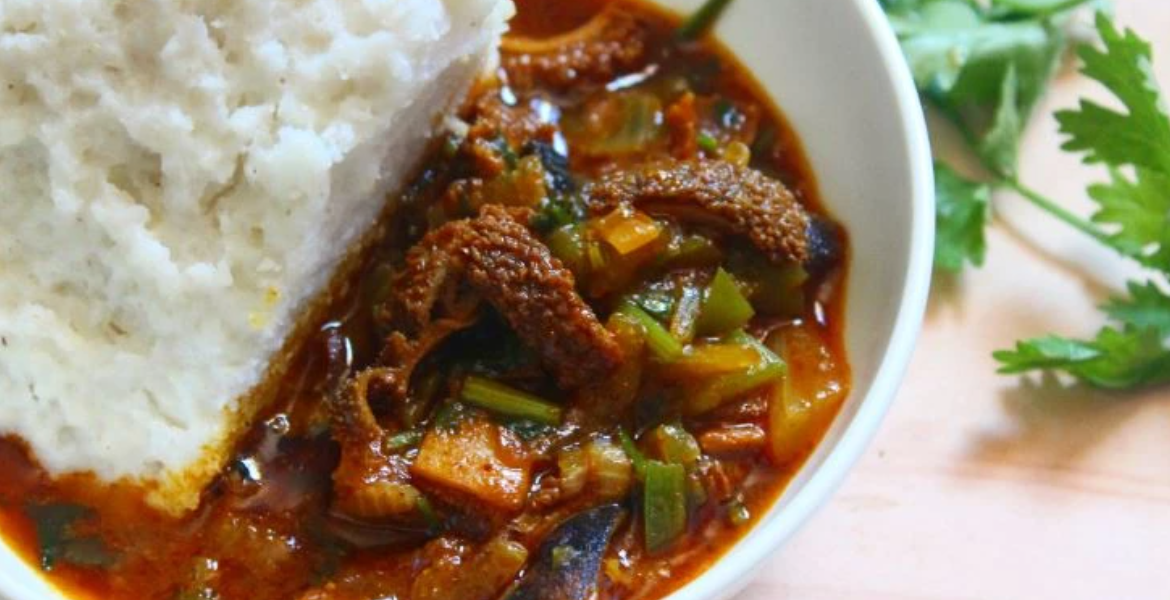
Matumbo
- Add new comment
- 573 views
The consumption of matumbo, or tripe, has experienced a significant surge in Kenya, driven largely by economic factors that have altered household spending patterns.
This trend is reflected in recent Economic Survey data, which indicates that tripe consumption in the country has reached 74,000 metric tonnes. Despite concerns raised by nutritionists about its lower nutritional value compared to other meats and its potential links to obesity and cardiovascular diseases, an increasing number of Kenyans are turning to this affordable protein source. Butchers in various Nairobi neighbourhoods have reported a marked increase in demand for tripe. Danson Wanderi, who operates in Kibera, sells approximately 25 kilos daily, amounting to about 160 kilos per week.
He notes that his stock is typically depleted by day's end, attributing this popularity not only to tripe's affordability—priced at around Sh300 per kilo compared to Sh760 to Sh1,200 for beef—but also to the widespread belief among customers that it helps alleviate hangover symptoms. Similarly, Thomas Oduor, a butcher in Makina, has observed comparable trends. Recognizing that many customers find the cooking process time-consuming, he offers a boiling service for convenience, with prices starting at Sh320 per kilo, which particularly appeals to low-income consumers. While tripe may be an economical choice, its nutritional profile has raised significant concerns among dietitians.
Kepha Nyanumba, a nutrition expert based in Nairobi, emphasizes that tripe, although an animal protein, offers less nutritional value compared to other common proteins such as beef, seafood, and chicken. Despite containing beneficial collagen, its high cholesterol content can be problematic for individuals at risk of heart disease or stroke. Nyanumba cautions that excessive tripe consumption may exacerbate existing health issues, as it is rich in saturated fats linked to weight gain and purines that can elevate uric acid levels in the body, potentially triggering gout.
Nutritionists, including Nyanumba and Joy Ouma, stress the importance of proper tripe preparation to avoid foodborne illnesses caused by pathogens. Ouma further elaborates on the potential risks associated with other organ meats, noting that while offal contains numerous essential nutrients, improper handling can lead to serious health complications. Interestingly, despite its relative unpopularity among certain demographics, offal, including tripe, offers specific nutritional benefits such as vitamin B12 and selenium. However, Ouma points out that while tripe can contribute to a balanced diet, it is less nutrient-dense compared to organ meats like liver and kidneys, which are richer in essential vitamins and minerals.
The belief in tripe's efficacy for alcohol recovery remains unsubstantiated by scientific evidence. According to Ouma, while proteins play a role in recovery, effective hydration and balanced nutrition are far more beneficial in addressing hangover symptoms.
Comments
Meats causing cardiovascular disease is a false doctrine brought by anti humans in pharma and medical industry who are pushing for sugar and seed oil which cause inflammation, obesity and cardiovascular and cancer. Keto diet of protein is the best weight loss strategy for weight loss. Animal fats are best for cooking
Yeah. This is a lie to get away from matumbo and be more like Europeans. Mafi kabisa.

The government is working to control the price of meet for money making purposes. Then leave Kenyans to eat what they can afford. In olden days Kenyans ate meat only on occasions. So if the government tries to control meat as they have done, the government will be left holding its meat. The public will go back to their forefathers ways where all these dieticians never existed.
Write the article in Kiswahili to reach those masses.